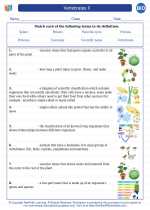Systems
In biology, a system refers to a group of organs or structures that work together to perform specific functions within an organism. These systems can be studied individually or in relation to each other to understand how they contribute to the overall functioning of the organism.
Types of Systems
- Circulatory System: Comprised of the heart, blood vessels, and blood, this system transports nutrients and oxygen to cells and removes waste products.
- Respiratory System: Includes the lungs and airways, and is responsible for the exchange of oxygen and carbon dioxide between the body and the environment.
- Digestive System: Involves the stomach, intestines, and other organs, and is responsible for breaking down food and absorbing nutrients.
- Nervous System: Comprised of the brain, spinal cord, and nerves, this system controls and coordinates body activities and allows for communication between different parts of the body.
- Endocrine System: Includes glands such as the pituitary and thyroid, and regulates bodily functions through the secretion of hormones.
- Excretory System: Involves the kidneys, bladder, and related structures, and is responsible for removing waste products from the body.
- Immune System: A complex network of cells, tissues, and organs that work together to defend the body against pathogens and foreign substances.
- Reproductive System: Responsible for the production of offspring and includes organs such as the testes and ovaries.
Studying Systems
When studying biological systems, it is important to consider both the structure and function of the system. Understanding the interactions between different components of the system, as well as the relationship between different systems in the body, is crucial for a comprehensive understanding of how organisms function.
Key concepts to focus on when studying systems include:
- Structure and organization of the system
- Function and processes carried out by the system
- Interactions between the system and other systems in the body
- Regulation and control mechanisms that govern the system's activities
- Relevance of the system to overall organismal function and survival
By gaining a deep understanding of the various systems in the body and how they work together, students can appreciate the complexity and interconnectedness of living organisms.
[Systems] Related Worksheets and Study Guides:
.◂Biology Worksheets and Study Guides High School. Vertebrates II
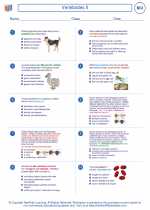
 Worksheet/Answer key
Worksheet/Answer key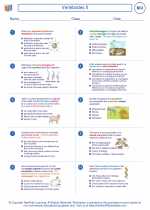
 Worksheet/Answer key
Worksheet/Answer key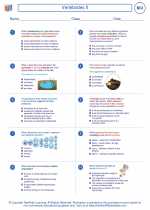
 Vocabulary/Answer key
Vocabulary/Answer key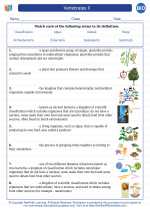
 Vocabulary/Answer key
Vocabulary/Answer key
 Vocabulary/Answer key
Vocabulary/Answer key